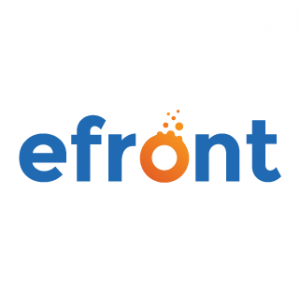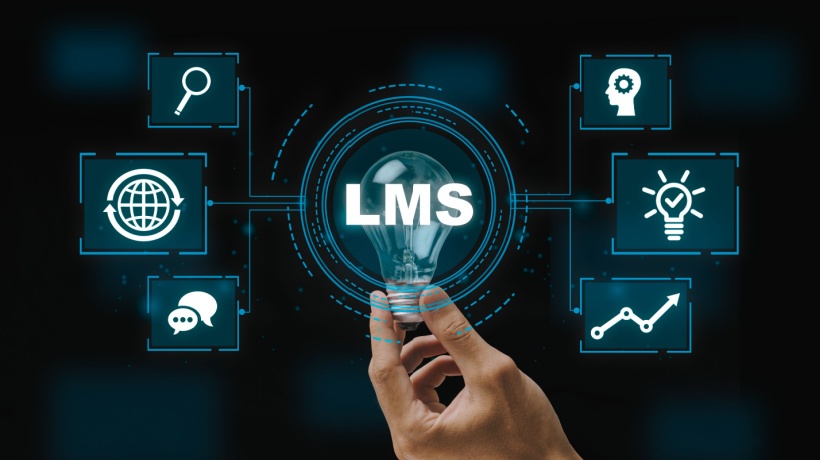An LMS Integration Guide For Effective Training
It's well known that people working together can achieve so much more than a single person. The same is true for software. A software product, when it integrates easily and works well with other pieces of software, it multiplies its power and functionality.
In this article, we are going to examine the 5 most important LMS integration options that your eLearning software should offer, and the ways in which they enhance the learning experience. We will also give some concrete examples on how eFront handles those integration cases.
1. Videoconference Τools
Whether you are doing corporate training or running a commercial eLearning service, you will still need an LMS that can support webinars, teleconference sessions between instructors and learners, and Instructor-Led online training in general. In-person training options add an element of interactivity and real-life learning experience to your training program, and can also be indispensable for certain learning scenarios, such as those involving personal interaction (e.g. customer support) or physical demonstrations of certain techniques.
Certain teleconference tools also allow you to record your Instructor-Led Training sessions and make them available at a later time. A modern LMS should allow for the seamless mixing of asynchronous online learning and Instructor-Led Training. eFront is a good example of an LMS that does in-person training right, and it supports not just 1, but 3 (count them!) teleconference options: WebEx, BigBlueButton, and Webinar.ru.
2. Single Sign-On
Single Sign-On, or SSO for short, refers to the ability of a piece of software to integrate with a central authentication and authorization platform. If you run any kind of corporate datacenter, you're gonna need this feature ― in fact, you probably already have some single-sign-on service in play.
Not only does LMS SSO support makes login easier, allowing your employees to only remember a single set of credentials and use them in your training portal as well as across your digital properties, but it also lets you centralize access management and enforce uniform secure access policies.
eFront, for example, allows you to integrate your eLearning portal's authentication with any LDAP, Active Directory, or SAML 2.0 based Single-Sign-On service, thus covering all the major enterprise SSO standards.
3. Javascript
Javascript is the programming language that powers the modern web. Chances are, your LMS, already uses a lot of Javascript to implement to have a snappy and modern interactive User Interface (eFront sure does). You might be surprised to learn that Javascript is also the most popular way to make web services talk to each other, but it's true.
From the embedded chat, monitoring, and advertising widgets, to indispensable services such as Google Analytics, Javascript is an easy and robust way to hook third-party functionality into your learning portal.
In eFront, you can easily mix your own or third-party Javascript scripts into your learning portal's UI code, which gives you the flexibility to integrate with any major LMS analytics platform, offer ad-supported courses, or even add your own JS-based interactive functionality to your learning portal.
4. API And Plugins
An API, short for Application Programming Interface, is a technical term referring to standards that give you the ability to control a piece of software programmatically and integrate it with third-party applications and code. eFront's LMS API, for example, allows for extracting data about the users and courses defined in your eLearning portal, registering users and managing the system through a code, and lots of other options.
What's more important is that this access is secure (protected by API keys) and well-defined (restricted to specific pieces of information). Plugins, on the other hand, are ready-made pieces of code that extend the functionality of a platform giving it new features and capabilities. An LMS plugin, for example, for specific reports or one which makes the LMS connect to a company's ERP so that learner information is automatically transferred there.
Plugins are usually written in the same programming language that the main software is. In the case of eFront this language is PHP, and so eFront allows for the creation of custom plugins through an extensive PHP-based API.
5. Zapier
We've covered APIs and plugins as programmatic ways to extend an LMS functionality and integrate it with external services, but there's one of the most valuable LMS integration options, an even easier way to connect your LMS to third-party systems that don't involve writing any code.
We're referring of course to Zapier (which eFront is the first LMS to offer support for), a powerful integration meta-platform that allows a compatible app to connect with any of the thousands of other Zapier-compatible apps and services such as Zendesk, MailChimp, and Slack.
Zapier, combined with the set of eFront-related triggers and actions, allow you to respond to learning-related events in your learning portal and have them cause a specific action in a third party system (for example to automatically subscribe newly registered learners to your MailChimp-based newsletter).
The LMS Integration Options That Will Make Your Courses Pop
In this article, we had a look at 5 essential LMS integration options that we consider as must-haves for any corporate (or commercial) training platform and gave some examples of what they could be used for and why they remain important regardless of any particular learning use cases. We also had a look at how a specific training platform, namely eFront, handles those options.
It's now clear, that eFront integrations options are endless. Schedule a demo to find out how eFront's capabilities can seamlessly upgrade your eLearning experience.










